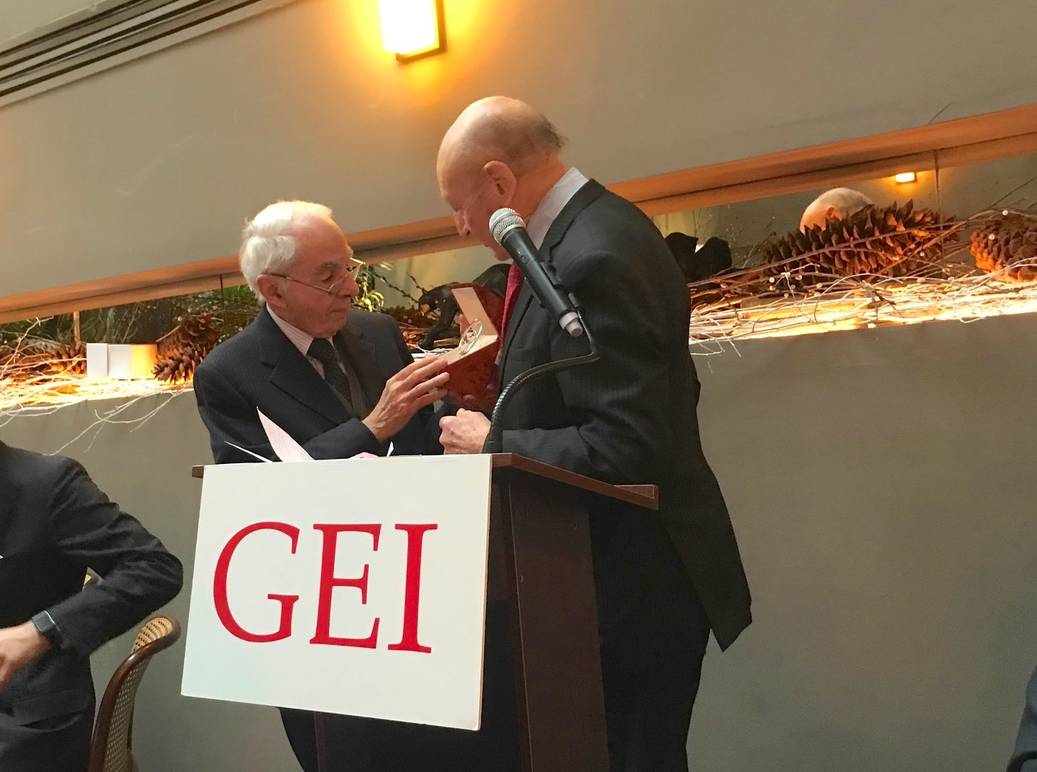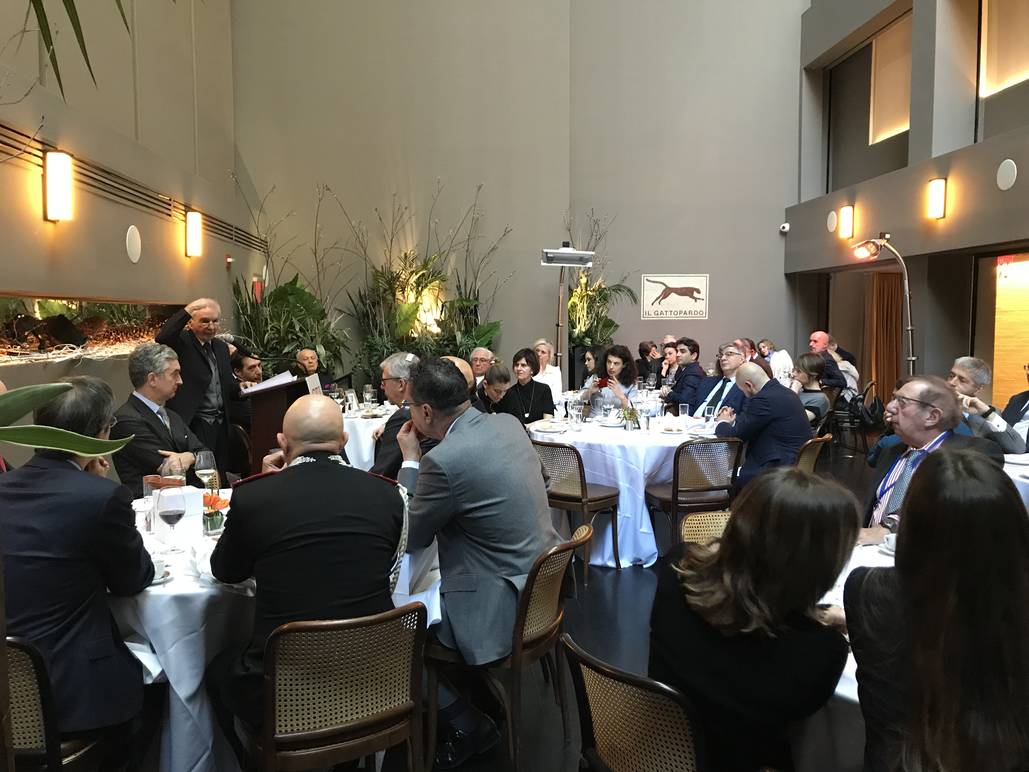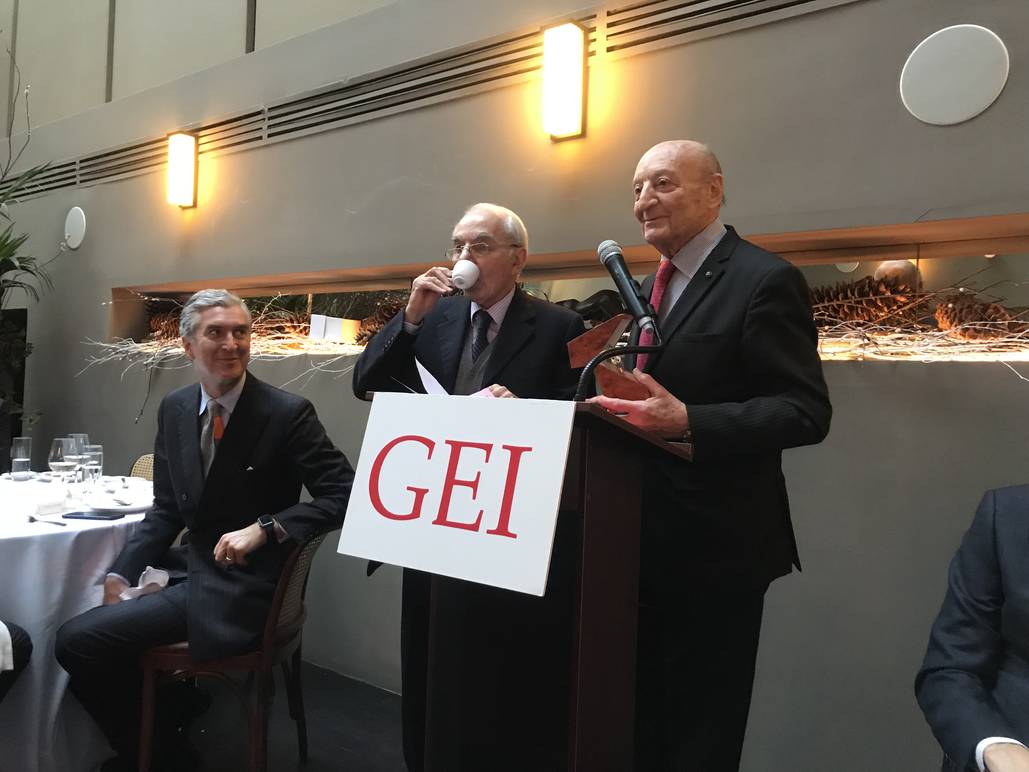President Giuliano Amato: The Authority of the EU Still Exists, Even Populists Know It
During a recurring luncheon at Il Gattopardo restaurant, GEI President Lucio Caputo presented President Giuliano Amato with the “GEI Friendship Award”, stating the “extraordinary importance to have the fortune, the pleasure, and the honor to have again with us President Amato who, in his long political career that spans over sixty years from 1958 to today, has been at the center of the Italian political scene.”
Stepping towards the podium, coffee cup in hand, “like a true Italian”, President Amato, who is indeed a central figure in Italian and European politics, having been a member of the Italian Parliament for 18 years, once Deputy Prime Minister, twice Treasury Minister, Minister of Interior and twice Prime Minister of Italy, began his speech by jokingly stating that, although “we Italians like to present our case as special”, the Italian political situation is anything but unique.
The professor argues that the Italian one is an example of a global shift towards populism that is taking place all over the world, resulting from the “revolt of the losers of globalizations, those who want to challenge the pre-existing establishment, by which they feel they have been ignored, neglected. However, he also expressed his faith in the European Union’s role as a much-needed balancing force.
President Amato explains that, though the “new globalization of the 21st century” has undoubtedly had positive impacts such as the reduction of poverty worldwide, it has also had negative effects on the most developed parts of the world, and not only. “Jobs were lost, salaries went down, the middle class is feeling closer and closer to lower-income classes, meanwhile the rich become richer.”
This is why people want politicians that say they will change things. “There is a shift from real democracies to populist systems who represent the will of the people”, the professor says. “In Italy, we now have two parties that were at the extreme of the political spectrum that have joined each other, formed a majority, whose real connective tissue is being against the previous establishment” and whose actions, though in a sense innovative (Professor Amato in fact mentions how closing Italian harbors has never been done before), do not care about being consistent with established rules.
“Will this innovative mood create something or destroy what we already have?”, he posits. Admitting that he does not have an answer for the long term, the Professor argues that the European Union has proven to be a balancing factor in this shifting political landscape, citing two examples, one of Poland and the other of Italy, in which the European Union has intervened against the actions of governments that were deemed a threat to democracy and stability, showing that, though Europe is facing new tensions from different countries, “the principles that keep the European union together remain valued and effective” and that “the authority of the European union still exists.”
He then enforces this idea with the seemingly paradoxical yet convincing point that “everybody, also the populists, are convinced that more Europe is needed”, pointing out how even the Italian government, who is profoundly preoccupied with the issue of immigration, is addressing it on a European level, asking for European solutions, for a European border, because even “they are aware that we are facing problems and difficulties that no individual state can solve on its own.”
And on this note, President Amato ends his speech, encouraging everyone to see in this “hope that the future might be better than what you may think.”







































i-Italy
Facebook
Google+
This work may not be reproduced, in whole or in part, without prior written permission.
Questo lavoro non può essere riprodotto, in tutto o in parte, senza permesso scritto.